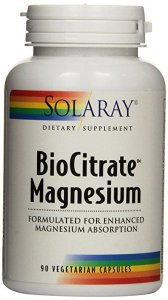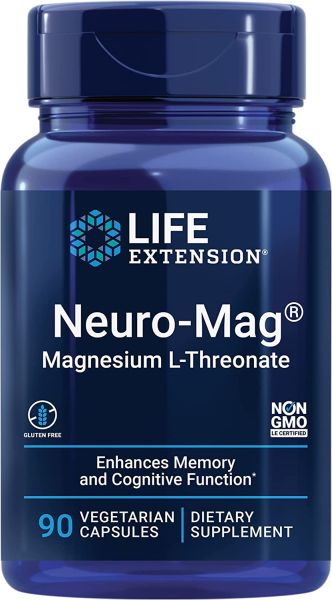Today we’re going to talk about Magnesium supplements for fatty liver / NAFLD. Many consider them useful in their quest to reverse their fatty liver and today we’ll see if that’s the case or not.
In the past, I have only briefly mentioned supplements for those suffering from a fatty liver and I only wrote one dedicated article to the most popular one: Milk Thistle.
I also said in the previous article that I am usually against most supplements and some e-mails I have received recently made me start a series on supplements for fatty liver to clear things out.
Talking about supplements in previous articles, I said that I am not a big fan of them and I still consider that a good diet, combined with increased physical activity is all that you need in order to reverse your fatty liver.
However, I was mostly talking about “miracle cures” and plant concoctions that have no proven positive effect over this condition.
I still don’t believe that there is such a miracle cure – and definitely there is none that is approved by the medical community (so be wary if you buy something like this and don’t expect much in return).
But I do understand that in some cases, taking dietary supplements – such as magnesium, which is a mineral that our body needs to function properly – is actually required and that sometimes it could actually help.
What is the best magnesium supplement to take?
You should never – unless instructed by your doctor – take a magnesium supplement that gives you more than 100% of the recommended daily dose.
Since a healthy diet for fatty liver includes foods that naturally contain magnesium (like fish, leafy greens, nuts etc.), I would recommend to actually go for a Magnesium supplement that offers a lower amount than 100%.
Take the supplements for 10 days every month unless otherwise instructed and always talk to your doctor before taking supplements – be them minerals or vitamins.
With these in mind, below are my best magnesium supplement recommendations for fatty liver disease.
Please note: I get commissions for purchases made through the links below (but they don’t have an influence over the recommended products)
Neuro-Mag Magnesium – Top Choice
This is my recommended Magnesium supplement as on pill offers 34% of the daily recommended dose for an adult. You can take 1 or 2 per day – or even 3 if you need the full amount.
I prefer this because it contains Magnesium L-Threonate, which is what neuroscientist Andrew D. Huberman from Huberman Lab recommends. I enjoy listening to his podcast (related to general health, not liver) and I really trust his judgement.
Therefore, I prefer taking Magnesium L-Threonate, which is exactly what this one offers.
Solaray Magnesium Supplement

This one offers 100% of the daily recommended magnesium intake and this is what you should get if you know you have a magnesium deficiency, as it helps you get back on track faster and keeps your Magnesium levels in control.
This one has Magnesium Citrate, which I would say is the general norm used in this type of supplements.
If you really are not sure if this is the right move, you can easily do some blood tests and check your Magnesium levels.
In my case, they were always a bit under or just above the lower limit – and that has been happening for years, so I constantly take Magnesium supplements, as instructed by my doctor and since I have been doing this, my overall state has improved.
I am not sure if this has been part of things that helped me reverse my fatty liver, but it sure didn’t hurt!
Why magnesium supplements might help reverse fatty liver
For starters, let’s see why taking magnesium supplements might actually be very helpful for those trying to reverse their fatty liver and why you might want to start taking some today, after talking about this with your doctor.
1. Magnesium and fatty liver relations

Studies made in 1972 and 2006 found out that many of the people with NAFLD had low magnesium levels.
It wasn’t clear if this was just a coincidence, if the fatty liver itself caused the magnesium deficiency or it was this deficiency that played a role in getting the fatty liver, but the important thing is that people with NAFLD usually have low magnesium levels and dealing with that problem might improve the condition or stop it from becoming worse.
We also have research data from 2018 which found that “intake of magnesium was associated with approximately 30% reduced odds of fatty liver disease.”
If we are to look at other countries, for example, we can find out that Traditional Chinese Medicine considers magnesium to be linked with liver and gallbladder health and recent studies, like the one quoted above show that although magnesium doesn’t have a direct effect over the liver, the fact that it promotes a healthy weight does help.
2. Magnesium levels and stress
This is a theory of mine which seems to make a lot of sense. Take it with a pinch of salt since I have no medical background, but after a lot of research and studying my own reactions to this matter, this is the conclusion I have made.
Let’s go for the facts first (so this is not my take, these are results of actual studies and experts’ opinions): magnesium levels are highly connected with stress.
Stress seems to be one of the causes of a magnesium deficiency in our bodies and lower magnesium levels can increase stress reactions as well – so it’s like a loop that keeps getting worse if left untackled.

This is why many doctors recommend magnesium supplements to those who are under a lot of stress and/or generally feeling tired.
I personally experienced this and saw great improvements (I am highly anxious and am under a lot of stress) after taking magnesium supplements for 10 days each month.
And now my own thoughts on the matter: stress is extremely harmful for your entire body, having all sorts of side effects – long term and short term – that the medical world is still trying to figure out.
Since stress is something extremely generic and it’s not considered a real diagnosis, there are many debates surrounding this subject.
BUT it is clear to most people who have been under a lot of stress and have to deal with it on a daily basis that it exists and it is harmful.
I believe that stress and fatty liver go hand in hand. Not necessarily that one is the cause of the other, but that stress can have a negative impact on your liver, both directly and indirectly.
When I am extremely stressed, I have no control over my body and I am also a huge stress eater.
When I eat for comfort, I don’t eat healthy food, in return hurting my liver even more. This is an example of what I mean about indirect damage that stress causes to our liver.
Not to mention the fact that when you are under a lot of stress, it’s more difficult to stick to your diet and stay positive – and then depression can kick in and things get even worse… a snowball of bad things that gets bigger and bigger.
But there could be direct connections as well, with hormones harming our liver, with our liver trying to produce more enzymes to fight stress: as I said, since I am not a doctor, I can’t really give an educated opinion on this, but common sense and research prove that I might actually be right. It’s your decision to make if I am right or wrong.
Conclusion
The bottom line is that stress levels can be reduced by getting extra magnesium in your diet, either through supplements or by eating more magnesium-rich foods.
Even if stress is not directly connected to your fatty liver (which, as I said, I highly doubt – at least from the indirect effects), at least you get to fight stress itself by taking magnesium supplements. That’s still a win in my book!
And since we started talking about magnesium and supplements in general, why not continue reading about the best vitamin supplements for fatty liver disease?

I was diagnosed with a fatty liver back in 2014 and managed to reverse it by mid-2015. Since then, I’ve been studying it, continuously updating my knowledge with the latest scientific findings and practical approaches to give others the help they need to reverse their condition.
My approach to managing fatty liver is holistic, balancing scientifically-backed information with real-life, practical advice based on personal, direct experience.
I am also the admin of the Fatty Liver Support Group on Facebook and the Fatty Liver Subreddit.



I used Milk Thistle for my fatty liver situation and also used Elemental Magnesium Bisglycninate(spelling may be wrong) and a Ketogenic type diet under the care of my naturopathic doctor.
Did your approach help with the fatty liver?
Yes the fatty liver and pre=cirrosis liver condition were both reversed though what I had always suspected was a problem with my thyroid and then after many okays on the normal way of checking turned up nothing, I went to my Naturopathic Doctor and asked her to do a 3T3 blood test and my results were no surprise as I was on T3 number 11 which should be 20 and T4 number 9 and should be about 15 I think. I had been going to doctors for years complaining of fatigue. So then now I have chronic fatigue syndrome, Thyroid condition of sorts, and possible fatty liver again. Constantly trying to find a balance.
I so feel what is going on and where in my body.